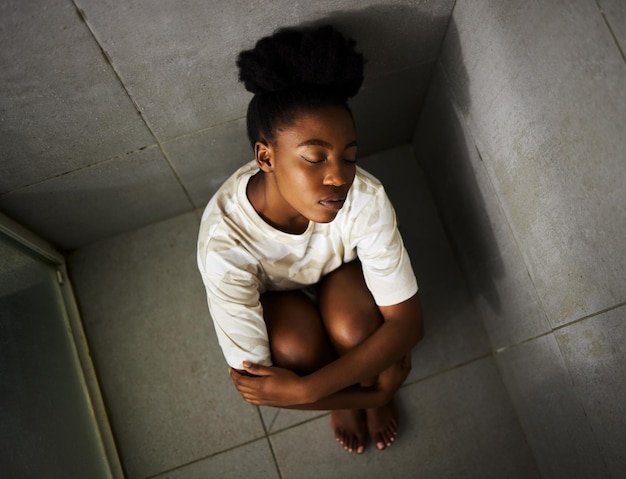
Image source:
https://www.freepik.com/search?format=search&page=3&query=A+black+girl+in+ghetto+crying
I was at home, resting and preparing for my upcoming NYSC programme. Unlike my peers, I wasn't anxious because I had found a way to avoid that fear. I paid people to help ensure that I would be posted close to my parents. However, when I opened my call-up letter, I was shocked to see that I had been assigned to Ondo. As if that wasn't enough, I ended up in a public school as a teacher, serving as the assistant class teacher for JSS2.
My students were rough and inattentive; they hardly listened to my lessons, and each assignment I gave resulted in zero scores. Amidst this challenging environment, there was one student who stood out, Aishat. Aishat was intelligent and dark-skinned, but she was also non-vocal and introverted. She refrained from engaging with her classmates, who often referred to her as a "weirdo." Whenever I called on her, she remained silent, and while I initially deemed this behavior rude, I eventually chose to let her be.
Outside of the classroom, Aishat's behavior was equally puzzling. She would either hastily retreat or hide her face whenever she saw me, completely ignoring my presence. Yet, a constant grin on her face revealed a deeper complexity.
Then, on a particularly sunny Monday morning, after an exhausting teaching session, I decided to grab a bite from a nearby food seller because I was hungry. Next to the food vendor's store, I noticed a dimly lit spot where someone was crying and coughing. Upon closer inspection, I discovered that the person was Aishat. Conflicted, I hesitated between scolding her for her actions and understanding the reason behind her tears. Opting for empathy, I approached her and gently inquired about her distress. Reluctantly, she began to open up after some persuasion.
Her story was a heartbreaking one. Aishat, only 14 and the eldest of her siblings, she shared that her mother had left her father due to poverty. Left in her father's care, Aishat and her younger sisters were financially dependent on him, as he worked as a bus driver. However, her vulnerability was exploited by a male neighbor who subjected her to molestation and abuse. Threatened into silence, Aishat had no one to turn to. I was deeply shocked by her revelation. I asked if she had confided in her father, but she explained he was often absent, returning home late at night after they had already gone to sleep.
Horrified, I took immediate action. I reported the matter to the head teacher and the police, leading to a resolution. Aishat's demeanor eventually shifted, as she became more sociable and formed new friendships in class.
This incident underscored the profound effects of single parenting on children's lives. Aishat's inability to concentrate and her classmates' derogatory label of "weirdo" were clear indications of the emotional and behavioral challenges she faced. Children from single-parent households are often susceptible to depression, lack of proper discipline, and inadequate child support. Sociological research also suggests they may be more prone to mental health issues, external threats such as abuse, and negative peer influences.
However, it's important to recognize that single parents themselves also face challenges, struggling with finances due to their sole responsibilities.
Nevertheless, the narrative that children from single-parent families are destined for hardship is a fallacy. By investing quality time and nurturing open communication, single parents can significantly impact their children's lives. Prioritizing emotional well-being over purely financial support is pivotal, as it shapes a more balanced and fulfilling future. While single parenting isn't a choice everyone makes willingly, parents thrust into this situation must prioritize their children's happiness and overall development. Amidst these challenges, children should remain the focal point, as they are the essence of every family.




